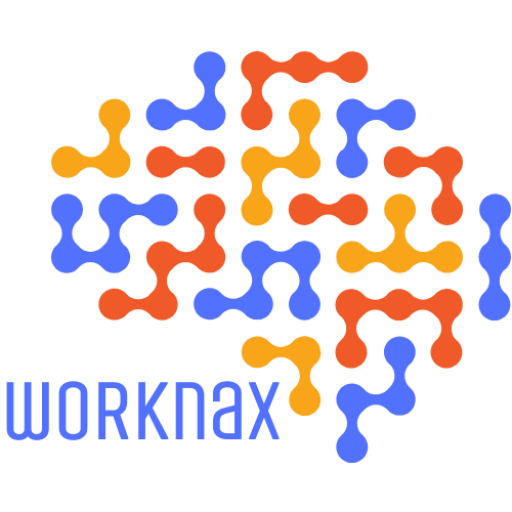Anúncios
No mundo acelerado de hoje, o conceito de aprendizagem ao longo da vida tornou-se cada vez mais vital. Vivemos em uma era caracterizada por rápidos avanços tecnológicos e mudanças constantes. Aqueles que se adaptam por meio da educação continuada frequentemente se encontram em vantagem significativa. Adotar a aprendizagem ao longo da vida não é apenas um luxo; tornou-se uma necessidade para alcançar o sucesso a longo prazo em praticamente qualquer área.
A aprendizagem ao longo da vida é frequentemente descrita como a busca contínua, voluntária e automotivada por conhecimento para o desenvolvimento pessoal ou profissional. Isso vai além da educação formal, incluindo métodos informais, aprendizado com experiências e aquisição de novas habilidades. Ela permite que os indivíduos se mantenham atualizados com as tendências e desenvolvimentos do setor, garantindo sua relevância em um mercado de trabalho competitivo. Ao adotar uma mentalidade voltada para a aprendizagem, é possível superar diversos obstáculos e desafios que surgem em qualquer carreira.
No ambiente de trabalho, os empregadores valorizam cada vez mais habilidades que podem mudar e evoluir. Os percursos educacionais tradicionais podem oferecer conhecimento básico, mas nem sempre proporcionam a agilidade necessária para a força de trabalho atual. Aprendizes ao longo da vida demonstram uma abordagem proativa ao crescimento pessoal e profissional, demonstrando sua capacidade de se adaptar a novas tecnologias e práticas. Essa adaptabilidade pode aprimorar significativamente a trajetória profissional e abrir portas para novas oportunidades.
Um aspecto particularmente importante da aprendizagem ao longo da vida é o seu papel no fomento do pensamento crítico e da criatividade. Quando os indivíduos se comprometem com a educação contínua, tornam-se mais propensos a desafiar as próprias perspectivas e ideias. Esse processo de questionamento e exploração incentiva a resolução inovadora de problemas, crucial em qualquer área. Uma mentalidade de aprendizagem contínua também pode levar a uma maior resiliência, permitindo que os indivíduos enfrentem os desafios com confiança e disposição para enfrentar situações difíceis de frente.
O networking é outro componente vital da aprendizagem ao longo da vida que contribui para o sucesso. O envolvimento em oportunidades educacionais frequentemente conecta indivíduos com colegas, mentores e especialistas do setor com ideias semelhantes. Esses relacionamentos podem fornecer insights e apoio inestimáveis, abrindo caminho para colaborações e novos projetos. Ao cultivar uma rede de colegas, os indivíduos podem trocar conhecimentos, ideias e recursos, o que pode impulsionar suas carreiras.
O papel da tecnologia na aprendizagem ao longo da vida não pode ser ignorado. Muitos recursos estão agora disponíveis online, tornando a educação mais acessível do que nunca. De cursos online a webinars, podcasts e e-books, os indivíduos podem adaptar suas experiências de aprendizagem às suas necessidades e agendas. Essa flexibilidade permite que as pessoas aprendam novas habilidades ou aprofundem os conhecimentos existentes, equilibrando o trabalho e os compromissos pessoais.
Além disso, a aprendizagem ao longo da vida é vital para a certificação e credenciamento profissional. Muitos setores exigem educação continuada para manter licenças e credenciais. Ao se manterem atualizados sobre esses requisitos, os profissionais podem garantir sua competitividade. O compromisso com a aprendizagem ao longo da vida não apenas cumpre essas obrigações, mas também alinha o conjunto de habilidades de um indivíduo às crescentes demandas de sua profissão.
Além dos benefícios profissionais, a aprendizagem ao longo da vida promove o crescimento e a realização pessoal. Envolver-se em novas experiências de aprendizagem abre caminhos para hobbies e interesses que talvez não fossem explorados anteriormente. Essa expansão de conhecimento pode enriquecer a vida e desenvolver um indivíduo completo. Incentiva a curiosidade e a paixão, tornando a vida mais agradável e gratificante.
Outro aspecto importante da aprendizagem ao longo da vida é seu impacto na saúde mental e na função cognitiva. O envolvimento contínuo em atividades de aprendizagem pode ajudar a manter o cérebro ativo e aguçado, reduzindo o risco de declínio cognitivo com o envelhecimento. A aprendizagem ao longo da vida também tem sido associada a níveis mais elevados de felicidade e satisfação com a vida. Quando os indivíduos investem em sua própria educação, criam um senso de propósito e realização que contribui positivamente para seu bem-estar geral.
Definir metas pessoais e profissionais também se torna mais fácil por meio da aprendizagem contínua. Ao se comprometer com o autoaperfeiçoamento, você desenvolve as habilidades necessárias para atingir esses objetivos. Todos enfrentam desafios e contratempos, mas quem aprende ao longo da vida tem ferramentas para lidar com as adversidades de forma mais eficaz. Essa abordagem proativa estimula os indivíduos a se tornarem persistentes e resilientes, características cruciais frequentemente associadas ao sucesso.
Outra tendência recente na educação é o foco crescente na inteligência emocional (QE). A aprendizagem ao longo da vida cultiva a inteligência emocional, incentivando a autorreflexão e a conscientização. Indivíduos que se dedicam a aprender sobre o comportamento humano e as emoções podem se comunicar com mais eficácia e construir relacionamentos mais fortes. Essas habilidades são cruciais em ambientes de equipe e cargos de liderança, onde a colaboração e a empatia desempenham papéis significativos para alcançar o sucesso compartilhado.
Além disso, a aprendizagem ao longo da vida capacita os indivíduos a compartilhar seus conhecimentos e expertise com outras pessoas. Ensinar o que você sabe não apenas reforça sua compreensão, mas também contribui positivamente para sua comunidade. Quando as pessoas se envolvem em mentorias ou voluntariado, elas ajudam a inspirar a próxima geração de aprendizes. Esse senso de retribuição promove um ciclo de crescimento e aprendizado contínuos na sociedade.
A importância de uma mentalidade de crescimento é inegável. Adotar uma atitude que aceite desafios, valorize o esforço e veja os fracassos como oportunidades é essencial na aprendizagem ao longo da vida. Esse tipo de mentalidade leva os indivíduos a assumir riscos, explorar novos caminhos e se libertar de crenças limitantes. Aqueles que praticam a aprendizagem ao longo da vida tendem a ter uma mente mais aberta e a aceitar mudanças, aumentando ainda mais suas chances de sucesso.
Para cultivar o hábito de aprender ao longo da vida, comece aos poucos. Comprometa-se a ler um certo número de artigos, livros ou ouvir podcasts educativos semanalmente. Inclua o aprendizado na sua rotina diária. Reserve períodos específicos de tempo dedicados ao desenvolvimento pessoal ou à educação profissional. A chave é o engajamento consistente, mesmo que o tempo investido seja modesto. Com o tempo, esses pequenos esforços podem levar a um crescimento e compreensão significativos.
Participar de workshops, seminários ou conferências também pode revigorar o desejo de aprender. Esses ambientes frequentemente proporcionam novas perspectivas, insights do setor e exposição a novas ideias. Estar cercado por pessoas apaixonadas pode reacender o entusiasmo pelo aprendizado e incentivá-lo a explorar territórios desconhecidos. O engajamento com essas comunidades pode fomentar a motivação e o comprometimento com o desenvolvimento pessoal contínuo.
Incorporar feedback ao processo de aprendizagem é outra abordagem eficaz. Críticas construtivas e insights de colegas podem impulsionar significativamente o crescimento individual. Aprender com os erros faz parte da jornada, e entender como aproveitar essas lições pode contribuir significativamente para o sucesso. Ao adotar o feedback, os indivíduos podem refinar continuamente suas habilidades e abordagens, levando a melhorias duradouras.
À medida que a interconexão global continua a crescer, compreender perspectivas diversas torna-se inestimável. A aprendizagem ao longo da vida incentiva os indivíduos a se envolverem com diferentes culturas, ideias e pontos de vista. Essa conscientização promove a empatia e a sensibilidade cultural, características essenciais para a colaboração na força de trabalho diversificada de hoje. Aprendizes ao longo da vida navegam melhor pelas complexidades de trabalhar com uma miríade de origens e experiências.
Investir em aprendizagem ao longo da vida também pode impulsionar o sucesso financeiro. Em um mercado de trabalho em constante mudança, indivíduos com conjuntos de habilidades diversificados podem receber salários mais altos e ter maior estabilidade no emprego. Os setores geralmente favorecem candidatos adaptáveis, que podem contribuir em diversas áreas. Essa comercialização agrega valor aos profissionais e amplia seu potencial de carreira.
Em resumo, a aprendizagem ao longo da vida é essencial para alcançar o sucesso sustentável no mundo em rápida transformação de hoje. Ela promove a adaptabilidade, a criatividade, o pensamento crítico e a inteligência emocional, ao mesmo tempo em que aprimora o crescimento pessoal e profissional. Indivíduos que se comprometem com a educação contínua não apenas permanecem relevantes, mas também desenvolvem uma vida mais enriquecedora e gratificante. Ao definir metas de aprendizagem, buscar feedback e abraçar perspectivas diversas, você pode contribuir para o seu próprio crescimento e o desenvolvimento de outras pessoas. Em última análise, a jornada da aprendizagem ao longo da vida abre portas para infinitas possibilidades e sucesso duradouro.



